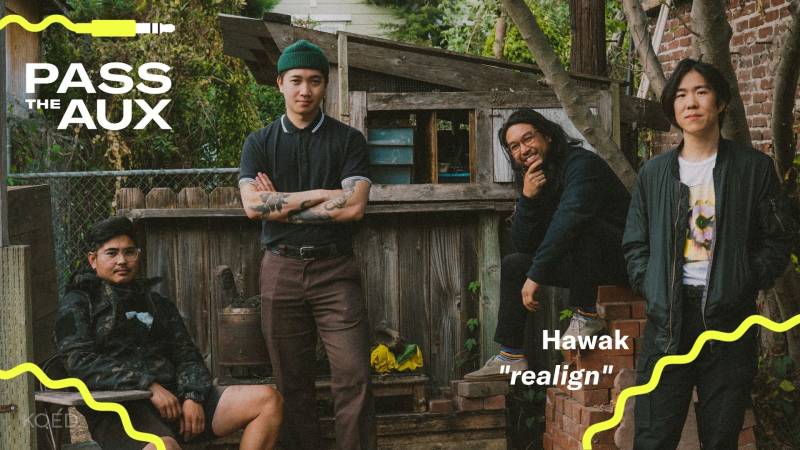Welcome to Pass the Aux, where KQED Arts & Culture brings you our favorite new tracks by Bay Area artists. Check out past entries and submit a song for future coverage here.
Oakland four-piece Hawak dropped their debut album nước in August after two years of delays. It’s a lean, sub-30 minute introduction to their screamo meets post-rock style. Their songs pause between furious hardcore freak-outs to sit with a melody or an atmosphere, like a boat in the calm between waves.
Hawak (Tagalog for “holding”) has Vietnamese American and Filipino American members, and they continue the decades-long Bay Area tradition of path-breaking Southeast Asian hardcore acts. Nước means “water” in Vietnamese, an allusion to the journey of Vietnamese refugees, or “boat people,” fleeing the consequences of the end of the Vietnam War. Hawak uses the story of the refugees to anchor the album’s themes of pain, alienation and social justice.
The album’s opener, “realign,” is Hawak’s thesis statement. It begins with the gentle warbling of the Vietnamese one-string zither, or đàn bầu, recorded from a busker at Fruitvale Station. Roaring power chords interrupt the scene and bring in the main lyric, delivered at the hoarsest, loudest pitch possible: “treading tradition / to see / if a path clears.” After two minutes of pure energy, the track gives way to a quiet archival recording of a former South Vietnamese soldier recounting their betrayal at the hands of the American government.
It’s a dense, heady first salvo, as appropriate for an album like nước. The record dodges the adjectives lazily applied to hardcore music like “raw” or “angry” to sit with ambivalent feelings like confusion and aimlessness. The album asks, circles around and fails to answer the concluding question of “realign:” “Can I find a way to a place I can call home?”


